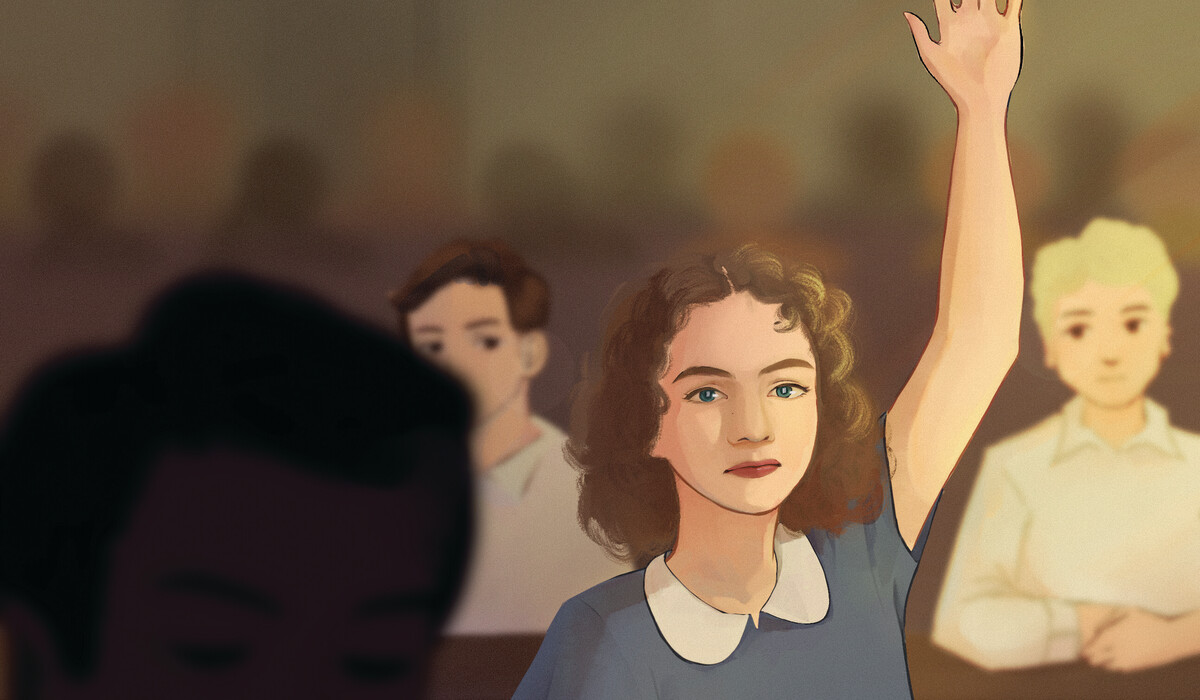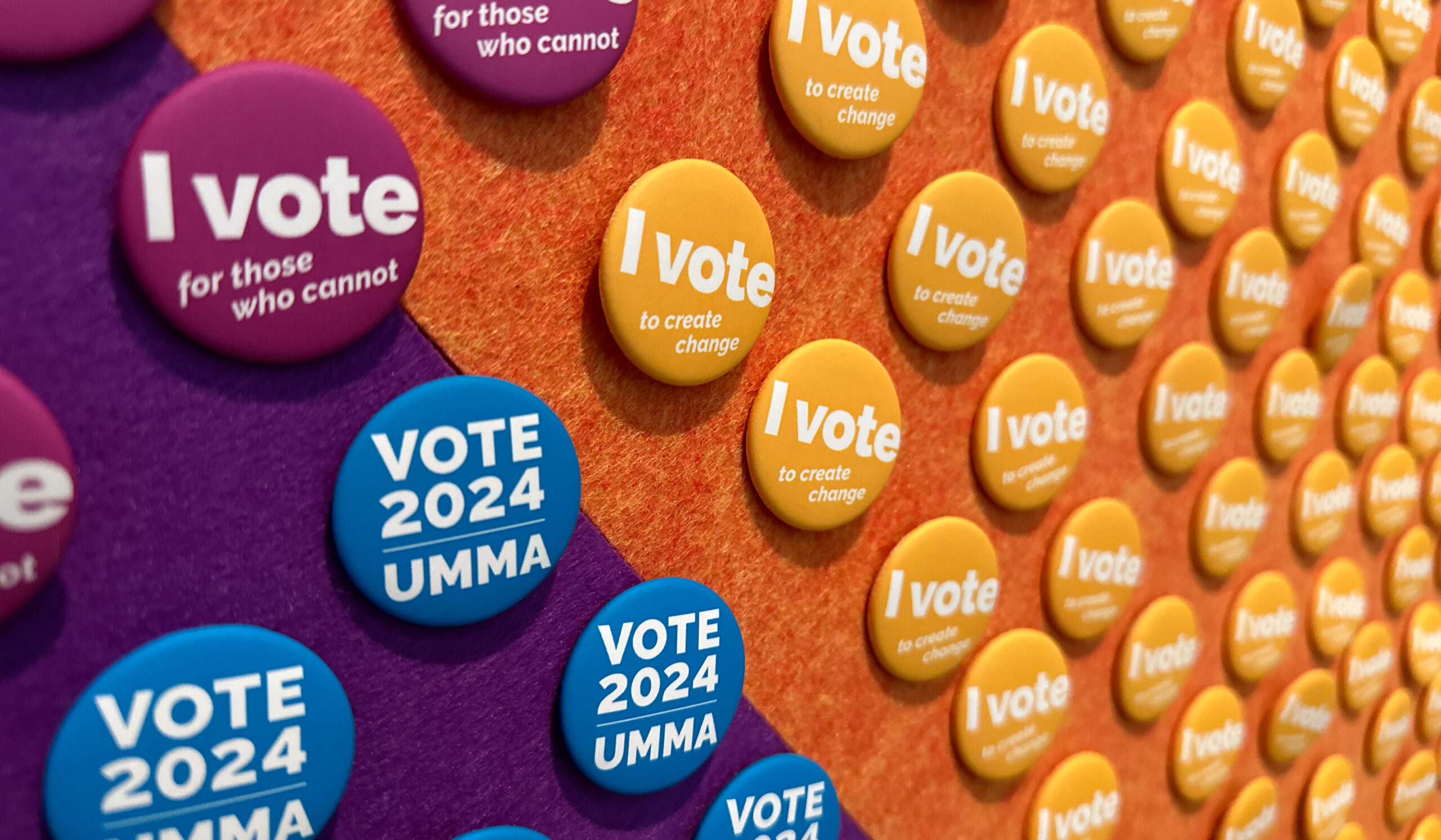When I applied as an out-of-state student to U-M in the spring of 1946, it never occurred to me that I would not be admitted. I was in utter disbelief to receive a form letter from the University saying that, with the deluge of veterans returning from World War II who were using the G.I. Bill, U-M was admitting no out-of-state women students.
Space was non-existent. Quonset huts were being used as classrooms and there were no available dormitories. The letter said the rejection did not reflect upon my credentials for admission, which would have earned me acceptance under ordinary circumstances.
I fired back a missive and explained that all my plans had been built around attending U-M. I don’t remember how many letters went back and forth, but eventually, the University caved and granted me admission.
When I was working my way through college in the late 1940s, employment for women students was handled through the office of the Dean of Women. I found the personnel there to be less than helpful.
Without a part-time job, I could not afford to continue in college. I thought this was unacceptable, especially since my parents wanted me to go to Brooklyn College (which was free), live at home in Staten Island, and commute to school. So I made an appointment to see the president of the University, who was then Alexander Ruthven (no easy task in itself).
When I met with President Ruthven, I told him of my plight and said I thought it would be a shame if someone like myself, eager for an education and willing to work, could not find a job. He seemed sympathetic. By the time I returned to my dormitory at Mosher-Jordan, there was a message for me to call the office of the Dean of Women. Lo and behold, they had found a part-time job for me, posing for life drawing classes in the architecture school. Had I been willing to pose nude, I would have gotten 25 cents more an hour, but I declined that part of the job.
Posing was not a job I enjoyed. I had to go from my dorm all the way across campus to the top floor of the architecture school and maintain incredibly difficult positions for several hours. But it enabled me to finish the semester and I found a job working in the dorm and at the hospital the next semester. However, I will never forget the fact that the president of the university took the time to assist a student.
When I was in law school, I took a course in administrative tribunals from E. Blythe Stason, then the dean of the law school. It was not a terribly exciting class, but compared to tax law, it was fun.
Throughout the semester, I frequently volunteered in class but was never once called upon. I was pleased to receive an A in the course.
Several months later, I saw Dean Stason at a tea, and he was chatting pleasantly with the female students. I asked him why he had not called upon me once all year. He admitted he saw me frequently waving my hand to be called upon. But he said he once called upon a woman student who did not know the answer to the question, and she burst into tears, whereupon he vowed that he would never call upon a woman student again and had adhered to that policy and always would.
Because I had to work on weekends when I was in high school, I did not have a very active social life. It was with some curiosity and trepidation, therefore, that I approached the social scene in Ann Arbor as an undergraduate.
But between freshmen mixers at orientation and mixers at Hillel and my forays to the International House, I found that I was very sought after. I enjoyed meeting people, especially the boys.
One young man named Irving Rozian, whom I met at a mixer, was engrossed in his physics studies and work with an electron microscope. He surreptitiously got me into the physics or engineering building at night that housed the electron microscope and pointed out its attractions to me.
Being non-scientific, I could not share his passion for the gadgetry. However, he also liked to dance, and we would go to the Saturday night dances at the Michigan Union. He also took me to the first football game I went to in Michigan Stadium.
We went on his bicycle built for two, and I still remember the dress I wore to the game. I could not get over the panorama of seeing the streets and sidewalks clogged with hundreds of thousands of students and alumni converging on the stadium and being part of the scene.
The seats students were given were the pits, and you could see very little if the U-M team was at one end of the stadium and your seats were at the other end, but the Michigan Marching Band that played after every U-M score and put on shows at halftime was resplendent.
Win or lose (and more often than not, U-M won), it was a great experience in camaraderie. Few people did not have some U-M regalia. And after the game, the trek back to the dormitories, and Saturday night ritual of who would have dates and who would not, and game postmortems were a great way to end the day.
Go Blue! Hail to the Victors!
In 2005, FRANCES EVE BILMES, ’49, JD’52, wrote a series of short essays about her time as an undergraduate and law school student at U-M. She became a trailblazing lawyer who spent decades practicing law in New York as a senior attorney in Bilmes & Bilmes with her husband, Murray. Three of their five children — Jonathan, ’80, MSE’82; Orah, ’83; and Joshua, ’85 — and their daughter-in-law, Barbara Becker, ’82, are U-M alums. Frances died in 2016, aged 88, and her son David Bilmes shared these essays with Michigan Alum in her loving memory.





